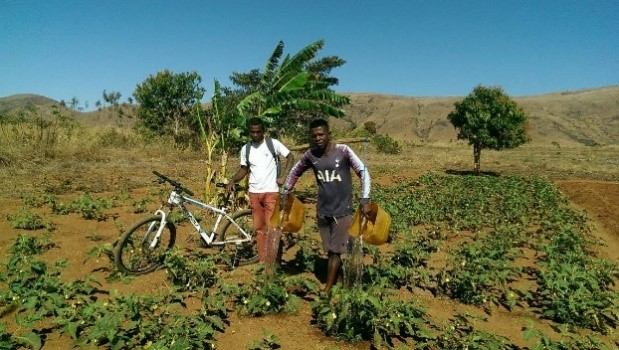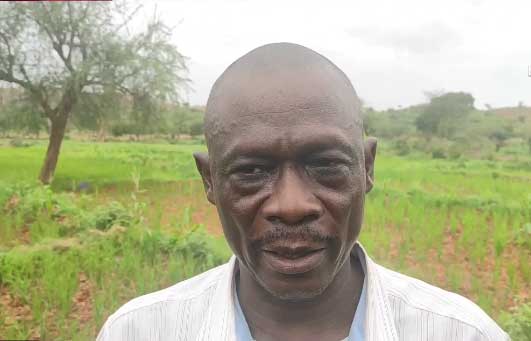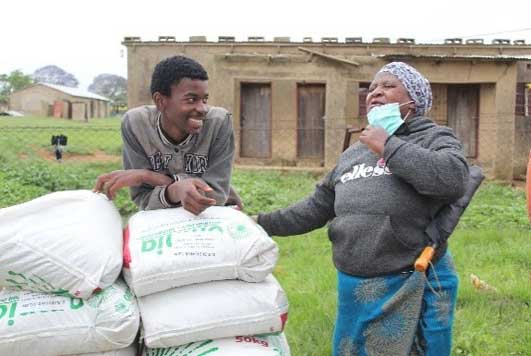How smallholder farmers in Madagascar, Burkina Faso and Eswatini endured the coronavirus pandemic
IFAD Asset Request Portlet
Asset Publisher
How smallholder farmers in Madagascar, Burkina Faso and Eswatini endured the coronavirus pandemic
Estimated reading time: 3 minutesWhen COVID-19 brought the world to a standstill, small-scale farmers braced themselves for hardship. From health worries to economic crises, its effects were felt across the world – especially among vulnerable rural farming communities.
As the virus spread and borders were closed, food systems were disrupted, creating major challenges for smallholders. To mitigate the impact of the crisis, IFAD’s Rural Poor Stimulus Facility and the Farmers’ Organizations for Africa, Caribbean and Pacific (FO4ACP) programme joined forces to establish the Support African Farmers in 2020 Emergency (SAFE 2020). The coordinated rapid response effort was implemented in July 2020 across 22 African countries to respond to the needs of smallholders.
This rapid response supported the needs of 300,000 smallholders by providing timely access to inputs, information, markets and finance. We look at some of the inventive ways farmers’ organizations helped their members adopt new ways of operating amid a global pandemic.
Madagascar
 |
| Relay farmer in southern Madagascar. © Daniel Randriamanjary |
In Madagascar, restrictions on movement between regions caused disruption to agricultural supply chains. Relay farmers, who need to move freely to carry out their work, were especially affected.
These unpaid volunteers travel from village to village, teaching valuable skills to farmers, like how to vaccinate animals or how best to use locally-adapted seeds. Working with Madagascar’s local farmers’ umbrella organisation FIFATA and FERT, IFAD enabled 96 relay farmers to continue supporting their peers by supplying them with smartphones and bicycles.
With roads closed to most traffic, bicycles allowed the relay farmers to keep moving between villages while the smartphones allowed them to organize the transporting of goods to markets, connect producers with buyers and keep farmers updated on the latest COVID measures.
Burkina Faso
 |
| Rice producer Lassane Ouedraogo © Trias |
Limiting the impact of the pandemic on production was a major challenge in Burkina Faso. Working with the local farmers’ organization UNAPOB and Trias, SAFE 2020 provided vulnerable farmers with inputs, including seeds, so they could keep growing food.
Market access was also severely affected by trade and transport restrictions. The drastic drop in sales meant storage was key to avoiding losing products. An onion cannery factory helped 110 farmers prevent crop loss and secure markets for their produce.
SAFE 2020 also encouraged producers from the national rice farmers’ organization
UNERIZ to practice agroecology by switching from mineral to organic fertilizers, to sustainably conserve and protect biodiversity and natural resources, develop knowledge and improve governance.
“We had training in agroecology, and I am applying what I have learned,” says farmer Lassane Ouedraogo. “I want to call on all the producers to get involved too. They will produce more, earn more and protect their land.”
Eswatini
 |
| Distribution of inputs, Kingdom of Eswatini © ESNAU |
Before COVID-19, the costs of producing maize, beans and sorghum were split 50:50 by the farmers and the government of the Kingdom of Eswatini. When the pandemic hit, most smallholders could no longer afford this deal.
SAFE 2020 helped the Eswatini National Agricultural Union reduce producers’ contribution by 10 per cent – meaning farmers only covered the remaining 40 per cent. For the most vulnerable farmers who still could not afford to pay their share, ESNAU offered loans so they could continue to grow food.
As a result, crop yields increased and farmers in Eswatini were able to feed their households and sell the surplus at markets.
“The assistance we received allowed us to buy inputs in bulk as a group. ESNAU is able to source inputs at good prices for us and they then distribute those inputs,” says farmer Irene Skhosana.
In Sierra Leone, social inclusion that leaves no one behind
Funding resilience in The Gambia
IFAD to provide additional support to mitigate COVID-19 impact in Somalia
Publication date: 18 January 2023